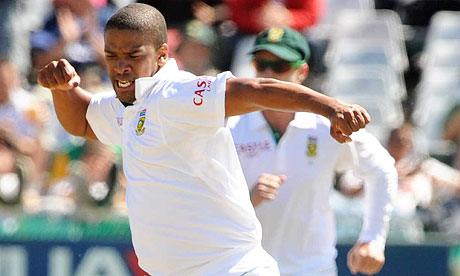The death of momentum
The star of Michael Lewis's piece in the new issue of Vanity Fair had the answer to a question that Moneyball left hanging

As Ian Dury once said, there ain't half been some clever bastards, and one of them is Daniel Kahneman, who won the Nobel Prize for Economics in 2002, even though he's not an economist, he's a psychologist.
Kahneman is the star of Michael Lewis's piece in the new issue of Vanity Fair, a story that fills in a little hole drilled by Lewis's book Moneyball. Kahneman, as you might expect of a man who knocked off a Nobel in his spare time, had the answer to a question that Moneyball left hanging, namely, why, if baseball coaches had spent their entire lives watching baseball, had they got player selection wrong so often, and by so much?
The solution lay in cognitive psychology and something Kahneman called 'the availability heuristic', which was the notion that human judgement is often based on the most easily recalled information. He explained this by means of one of his experiments: a roulette wheel was rigged to stop on one of two numbers, 10 or 65. Kahneman asked the groups he assembled in front of the wheel to write down the number they saw. He then asked them an unrelated question: "What is your best guess of the percentage of African nations in the UN?"
The average answer of the groups whose wheel landed on 10 was 25%, and of the groups who landed on 65 was 45%. In other words, the unrelated number affected their guess.
Kahneman called this 'the anchoring effect'. He conducted lots of other strange experiments too, like creating a character called Linda, who "was bright, majored in philosophy and who was deeply concerned with discrimination and social justice". He asked his subjects which statement was more true: i] Linda is a bank teller ii] Linda is a bank teller and is active in the feminist movement. Eighty-five per cent of people opted for number ii even though it is logically impossible [if number ii is true, then number i must be equally true].
Daniel Kahneman developed all of this stuff into 'prospect theory' which was about economics and ultimately, many years later, won him the big one. A Harvard undergraduate called Paul DePodesta, who had been hired by Billy Beane at the Oakland As, became interested in it. Along with Bill James, their maverick statistician, they exploited the 'willful ignorance' of the baseball player market, and revolutionised the way the game was measured.
Michael Lewis thought of all of this when he stumbled on a letter written to him in 1985 by Bill James. "Baseball men have an entire vocabulary of completely imaginary concepts used to tie together chance groupings," James wrote. "It includes momentum, confidence, seeing the ball well, slumps, guts, clutch ability, being hot and my all-time favourite, intangibles."
Kahneman's work seemed to answer James's question. Baseball coaches often based their judgement on nebulous concepts and 'instincts' rather than empirical evidence of the kind rooted out by James.
Cricket does it too. Australia dropped Simon Katich for being too old in the face of all available evidence: in the previous three years, he was the only Australian batsman to average over 50, had scored more runs, home and away, than anyone else, and two payers who kept their places, Ponting and Hussey, were older than Katich. There are plenty of other examples: how long did Steve Harmison's 7-12 affect opinion of his game?
During an insane day at Newlands on Thursday, when Australia were bowled out for 284 and then South Africa were bowled out for 96 and Australia's second innings score stood at 21-9, Robin Jackman asserted on commentary that "South Africa have the momentum here".
How did Jackman make that judgement? Probably because, in his mind, South Africa taking 9-21 was further forward than the knowledge that Australia were 209 runs ahead on a day when 20 wickets had fallen for 128 runs.
Momentum is king of those nebulous concepts affected by the availability heuristic. In truth, not even Daniel Kahneman could have told you what was going to happen at Newlands on Friday, other than that someone was going to win, because there's almost nothing to compare it with. Try one for yourself: Next time Australia bat, which will be in Johannesburg, how many do you reckon they'll score? Not that easy is it, when your availability heuristic is all over the place.

0 Comments:
Post a Comment
Subscribe to Post Comments [Atom]
<< Home